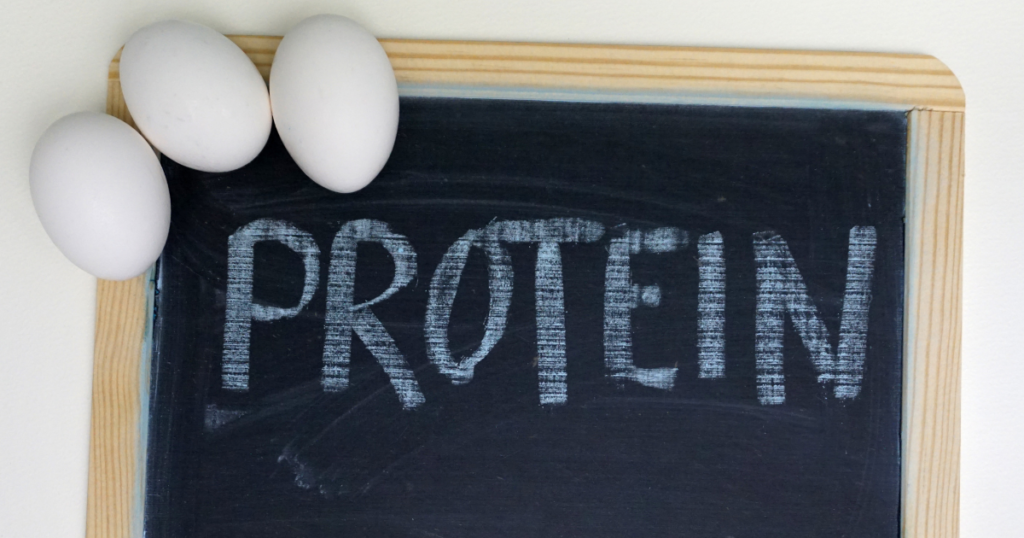Protein is essential for numerous bodily functions, including muscle repair, enzyme production, and hormone regulation. Whether you’re trying to build muscle, maintain a healthy weight, or simply ensure you’re meeting your daily nutritional needs, calculating your protein intake is a crucial step. Here’s an in-depth guide to help you figure out exactly how much protein you need.
The Basic Formula for Protein Needs

The simplest way to calculate your protein needs is to use your body weight. The recommended daily allowance (RDA) for protein is 0.8 grams per kilogram of body weight (or 0.36 grams per pound). This formula provides the minimum protein required to avoid deficiency and support basic bodily functions.
Example:
If you weigh 150 pounds, you would multiply that by 0.36.
150 x 0.36 = 54 grams of protein per day.
However, this is just the baseline. If you’re more active, trying to gain muscle, or have other specific health goals, your protein intake should be higher.
Adjusting Protein for Activity Levels
If you’re physically active, especially with strength training or endurance activities, your body will need more protein to repair and build muscle. For active individuals, the recommended protein intake can range from 1.2 to 2.0 grams per kilogram of body weight, depending on the intensity of your exercise.
Example:
If you weigh 150 pounds and engage in moderate exercise, your protein needs might increase to around 1.5 grams per kilogram, or approximately 102 grams per day.
Also Read: Keto Fast Food Breakfast
Special Considerations for Protein Intake
- Older Adults: As you age, your body naturally loses muscle mass. To counter this, experts recommend increasing protein intake to prevent sarcopenia (age-related muscle loss). Older adults may benefit from consuming 1.0 to 1.2 grams of protein per kilogram of body weight per day.
- Pregnancy and Lactation: Expectant mothers need more protein to support the growth of the baby. The recommended intake during pregnancy ranges from 75 to 100 grams of protein daily.
- Weight Loss: If you’re trying to lose weight, protein can be an important factor. Since protein keeps you fuller for longer, consuming a higher protein intake can help reduce overall calorie consumption. Aim for around 1.2 to 1.5 grams per kilogram if you’re focusing on weight loss.
Protein Quality: Complete and Incomplete Proteins
Proteins are made up of amino acids, some of which are essential and must come from your diet. Foods that contain all nine essential amino acids are called “complete proteins.” Common sources include:
- Animal-based: Eggs, chicken, fish, dairy, beef
- Plant-based: Quinoa, soy, chia seeds
Most plant-based proteins are “incomplete,” meaning they don’t contain all essential amino acids. However, combining different plant-based foods, such as rice and beans, can help you meet your amino acid needs.
Foods High in Protein
It’s not difficult to meet your protein requirements if you include a mix of animal and plant-based sources in your diet. Here are some high-protein foods:
- Animal Sources:
- Chicken breast (31 g per 100 g)
- Greek yogurt (10g per 100g)
- Eggs (6 g per egg)
- Salmon (25g per 100g)
- Plant-Based Sources:
- Lentils (9g per 100g)
- Quinoa (4g per 100g)
- Tofu (8 g per 100 g)
- Chickpeas (19g per 100g)
Using a Protein Calculator
For more precise measurements, you can use an online protein calculator, which takes into account factors like your age, gender, activity level, and goals to provide a personalized recommendation.
FAQs on Calculating Protein Intake
1. How do I calculate how much protein I need to build muscle?
To build muscle, you should aim for 1.2 to 2.0 grams of protein per kilogram of body weight daily. For someone weighing 150 pounds, this means around 82 to 136 grams of protein per day.
2. What happens if I don’t get enough protein?
Insufficient protein can lead to muscle loss, weakened immunity, and slower recovery from injuries. Over time, protein deficiency can result in serious health issues, including stunted growth (in children) and muscle wasting (in adults).
3. Can I consume too much protein?
While protein is essential, consuming too much can put a strain on your kidneys, particularly if you have pre-existing kidney conditions. It can also lead to an excess of calories if not balanced with physical activity, potentially resulting in weight gain.
4. Are plant-based proteins as good as animal-based proteins?
Both plant and animal-based proteins have their advantages. Animal proteins are typically “complete” proteins, providing all essential amino acids, while plant-based proteins often need to be combined to meet your amino acid needs. However, both can be part of a healthy diet.
5. How can I increase my protein intake without eating meat?
There are plenty of plant-based options, such as tofu, tempeh, beans, lentils, quinoa, and nuts. You can also incorporate protein-rich grains like buckwheat or add protein powders to smoothies.
By using these strategies, you can determine how much protein your body needs and make sure you’re meeting your nutritional goals. Whether you’re aiming to maintain muscle, lose weight, or simply stay healthy, adequate protein intake is key.